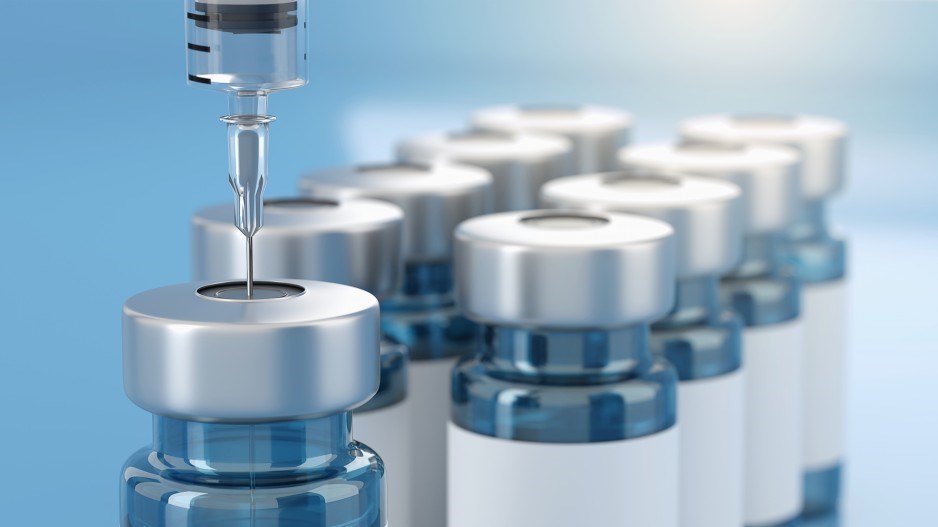The federal government is signing new deals to expand its domestic manufacturing capacity for vaccines amid ongoing shortages from foreign suppliers for doses taking aim at COVID-19.
Prime Minister Justin Trudeau announced Tuesday (Feb. 2) that Vancouver-based Precision NanoSystems Inc. (PNI) will be among those companies tapped to boost vaccine production following a $25-million investment from Ottawa.
The prime minister said once PNI’s facility is operating, it will be able to produce up to 240 million vaccine doses annually.
That facility is slated to launch in 2023, according to Innovation, Science and Industry Minister François-Philippe Champagne.
“This facility would advance the development and commercialization of other nanomedicines, including gene and cell therapies for cancer,” he said during a separate briefing later in the day.
Work has been underway at PNI for to fight off COVID-19 since last year.
Trudeau also confirmed the government has signed a memorandum of understanding with Novavax Inc. to produce vaccines within Canada.
The American biotech company’s Canadian doses are to be manufactured at a National Research Council facility in Montreal that is set to be operational sometime in the summer.
That facility will be able to produce 2 million doses annually.
The federal government also previously invested $46 million in a vaccine development facility at the University of Saskatchewan, which the prime minister said would be able to produce up to 40 million doses annually.
That facility should be operational by the end of the year, Champagne said.
Trudeau has promised repeatedly that Canadians wishing to be vaccinated should be vaccinated by the end of September.
It looks unlikely the new deals will factor into those plans based on when they're likely to launch the facilities.
“We don’t know what the future looks like a year from now, two years from now, three years from now,” Trudeau said.
“What we’re very clear on is Canada will be developing domestic manufacturing, so regardless of what could happen in the future, we will have domestic production.”
He said if the vaccine doses are not needed in Canada, the country will be able to offer doses to other countries around the world.
The deals come as Canada faces vaccine shortages brought on by production delays from Moderna Inc. as well as Pfizer Inc.’s decision to revamp its production facilities in Belgium to expand manufacturing capacity in the long term.
Meanwhile, the European Union has been floating the idea of imposing export controls on vaccines produced within its member states to ensure supply for EU members is prioritized.
The potential measures would mean countries in which vaccines are manufactured would require approval to ship to non-EU countries.
Trudeau said last week he’s received assurances from European Commission President Ursula von der Leyen that those measures will not affect the delivery of vaccines to Canada.
When pressed on the issue during Tuesday’s briefing, Trudeau did not directly address questions about whether the Europeans have provided more than a verbal commitment.
“International affairs and agreements between nations are based an awful lot on firm commitments made in conversations and shared publicly. It's not like a small claims court where you can show a document,” he said.
“The conversations I had with the president of the European Commission were enough to reassure me – and should be enough to reassure all Canadians — that the European Union is extremely mindful that Canada's contracts be respected and that our supply of vaccines not be interfered with.”



